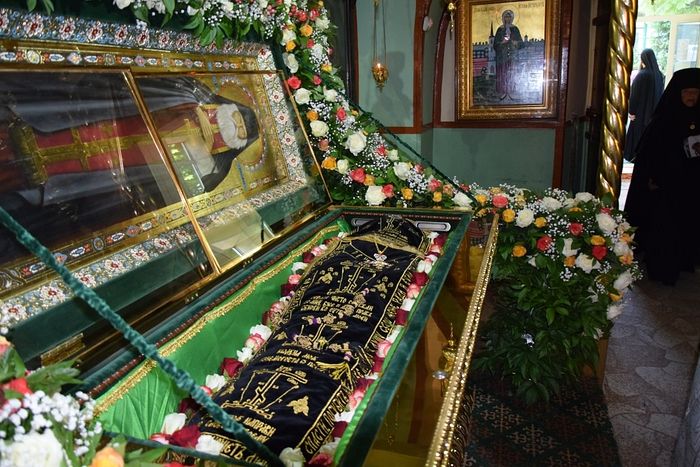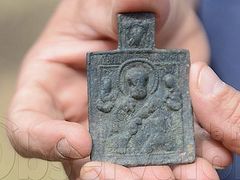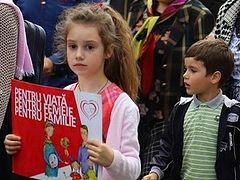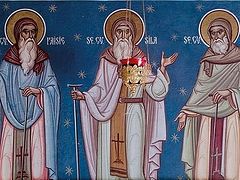Chișinău, Moldova, October 24, 2019
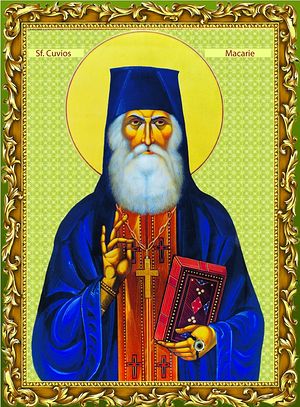 Photo: i2.wp.com The Holy Synod of the Church of Moldova of the Russian Orthodox Church met in Chișinău on Monday, October 21, under the chairmanship of His Eminence Metropolitan Vladimir of Chișinău and All Moldova.
Photo: i2.wp.com The Holy Synod of the Church of Moldova of the Russian Orthodox Church met in Chișinău on Monday, October 21, under the chairmanship of His Eminence Metropolitan Vladimir of Chișinău and All Moldova.
The hierarchs discussed a number of items, including work on the canonization of Venerable Makary of Holy Trinity-Saharna Monastery, and the establishment of a new skete.
The official report states that, having heard a report from Met. Vladimir on the submission of materials on Venerable Makary to the Commission for Canonization, the Holy Synod decided “To instruct the Synodal Commission for the Canonization of Saints of the Orthodox Church of Moldova to investigate all materials on the life and podvig of Venerable Makary of Saharna, to be sent for examination to the Synodal Commission for the Canonization of Saints of the ROC and the canonization of the mentioned ascetic among the saints of the Russian Orthodox Church.”
According to the official website of the Holy Trinity Monastery in Saharna, Venerable Makary (1888-1969) is locally venerated on May 13/26.
Holy Trinity Monastery, about 70 miles north of the capital city of Chișinău, is considered one of the main centers for religious pilgrimage in Moldova, where the faithful can venerate the relics of Venerable Makary, and a footprint of the Theotokos who appeared to one monk.
 Holy Trinity-Saharna Monastery. Photo: http://manastirea-saharna.md
Holy Trinity-Saharna Monastery. Photo: http://manastirea-saharna.md
Additionally, having heard a report from His Grace Bishop Silouan of Orhei, Chairman of the Synodal Department for Monasteries and Monasticism, on the establishment of a skete in honor of the “Assuage My Sorrows” Icon of the Mother of God, the Synod resolved to establish the skete in Ungheni in western Moldova, on the border with Romania.
Igumena Arsenia (Bordenyuk) was appointed abbess of the new skete. She previously served as abbess of Holy Ascension Monastery in Japca, Moldova.
***
Venerable Makary was born into a pious family in 1888. It is said that his mother received a revelation before his birth, though she never revealed its contents to anyone, only bearing the seal of the revelation upon her face.
Even as a boy, he always had a sense of respect for God and loved to sing the hymns he heard in church. One time when his father scolded him and slapped him, he responded: “You will see how you will kiss my hand.”
He loved to visit Saharna Monastery and often traveled there on foot. He was struck and deeply moved by everything he found there” the high hills, the cold spring, the hermitage with its rock church, the beautifully painted churches, and the melodious songs of the monks.
At the age of 12, he convinced his parents to let him join the monastery. He was initially refused due to his age, but he eventually convinced Abbot Joseph to receive him, having impressed him with his wisdom. From the very beginning, he joyfully fulfilled all the obediences entrusted to him. Later, having received the monastic tonsure, he multiplied his virtues, demonstrating his boundless love and patience to all, and he was soon ordained as a deacon and then priest. He dedicated himself wholly to preaching the word of God with love.
The monks and local faithful soon began to seek him out for a salvific word, and he was appointed the spiritual father of the monastery. The door to his cell was ever open to all. It was during this time that he began to read prayers for those afflicted by demons, and miracles and healing began to flow, which, out of humility, he did not realize were happening thanks to his prayers. He was later decorated with the title of “igumen” thanks to his many virtues, grounded in love of the Lord.
The monastery later become a convent and the fathers left for other monasteries. But missing his native monastery, Fr. Makary received a blessing to return and serve as spiritual father for the nuns.
The monastery was closed in 1964 and transformed into a psychiatric hospital. He spent another 2 years in a dug-out shelter on the edge of the village, where the people remained close to him. There, in his shelter, he baptized and married the faithful and taught the people the word of Truth.
“Father climbed Golgotha's hill with Christ daily, suffering along with Him and enjoying this fellowship with the Savior of the world.” Although he was old, the Soviets forced him to work with the others, removing stones from quarries, building roads, and other difficult tasks. However, he was eventually allowed to retire to his native village due to his weakness and illnesses.
On the night of April 22-23, 1969, Fr. Makary, surrounded by friends and spiritual children, peacefully gave his soul into the hands of God, saying humbly, “Glory to Thee, O Lord…”
After his death, he continued to live in the hearts of those who knew him and turned to him in prayer, and countless miracles and healings were worked by his prayers.
Saharna Monastery was reopened in 1991. The brotherhood learned of the holy life of Venerable Makary from the pious villagers, and burning with desire to have the protection of a saint over the reviving monastery, they entreated Met. Vladimir to exhume his relics and bring them to the monastery. Having received the blessing, his relics were found to be incorrupt. The process of canonization began, and he was locally canonized on December 21, 1995. His feast was established as May 13/26.
St. Makary is the first locally-canonized saint in the Orthodox Church of post-soviet Moldova.

